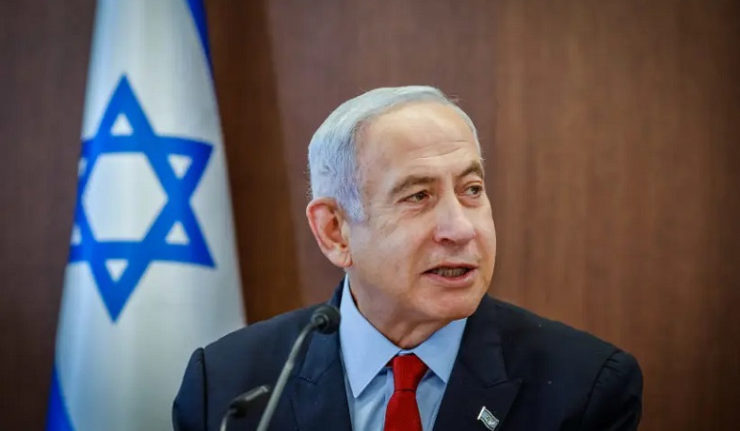
Even after five visits to the Middle East since the start of the Israel-Palestine war on October 7, U.S. Secretary of State Antony Blinken has not been able to secure a ceasefire deal that might bring this brutal war to an end. One of the key reasons why the Biden administration is investing diplomatic energy into the ceasefire is that POTUS is now waking up to how his unflinching support for Israel’s brutal killing of Palestinians might cost him in the presidential elections due later this year. When the war started in October, the Biden administration did not necessarily view it from the electoral lens (because it did not believe the war would last this long). The fact that it has already stretched to February and Israeli officials are already indicating their intentions to expand it ever further means that Israel would still be killing Palestinians when Americans vote in November. This could cost Biden because recent surveys show that about 76% of the Democrat voters support a ceasefire. Even at the international level, Biden is experiencing isolation – something that the Trump campaign would indicate as a failure of U.S. foreign policy under Biden.
However, if Biden’s domestic imperatives now demand a politics of ceasefire, Netanyahu needs just the opposite, which is why he has not only rejected the U.S.-backed efforts to secure a ceasefire deal but is also seeking to expand its offensive into Rafah. For Netanyahu, an offensive is the key to staying in power. As a recent survey showed, National Unity party leader Benny Gantz would easily form a coalition if fresh elections were held. His position was not this strong before the war. But since October 7, Netanyahu’s position has nosedived.
At the same time, Netanyahu’s current coalition partners, which include far-right parties like the Jewish Power party, have already threatened to leave the coalition if the government were to do any “reckless deal” with Hamas. To make matters even worse for Netanyahu, most Israelis want early elections, showing growing dissatisfaction with the ruling coalition and making it imperative for Netanyahu to take only those steps that would improve his political image and minimise the cost. Therefore, while talks of a deal with Hamas that falls short of an immediate release of all hostages is simply unacceptable, projections about “total victory” on Hamas do make political sense.
But Netanyahu’s options are not straightforward. Each one of these comes with certain consequences. So, for instance, if the far-right opposes any deal with Hamas short of the total destruction of Palestine and a permanent end of the ‘two-state’ solution, families of the 136 Israeli hostages held by Hamas want him to secure the release and not rely on military action alone. They have been regularly protesting, and Netanyahu understands that these demonstrations could convert into a much bigger political movement, especially given his low popularity at the moment, in the near future. Before the war broke out on October 7, Israel saw massive anti-Netanyahu regime protests due to its remodelling of the judiciary. While the war created a sort of unity, it is now turning to be a veery fragile one that can collapse any moment now on the regime.
Netanyahu’s dilemma is that he cannot possibly continue to wage – and expand – the war and expect his strategy, i.e., to inflict maximum damage on the Palestinians to secure the hostages, to work. There are several reasons for this, but the most important one is the fact that Netanyahu’s ruthless military operation has not been able to eliminate Hamas, nor is it clear if Hamas can be eliminated this way. For one thing, Israel’s ruthless killing of innocent civilians, including thousands of children, might allow Hamas to increase its popular support. As a recent US intelligence report said, Israel, even though its powerful offensive may have damaged Hamas’ military capacity for now, Israel is not even close to eliminating the group per se.
This is one key reason why Netanyahu – who has set the total destruction of Hamas as his key strategic objective – will not accept any deal that might prevent him from realising this objective. This is also one key reason why the far-right parties oppose any deal with Hamas, and this is yet another reason why Netanyahu cannot simply de-escalate the military option and seek ways to secure the release of the hostages. This would be tantamount to treating Hamas as a political equal.
It is because of the combined impact of these reasons that Netanyahu is unable to contemplate anything short of a long war on the Palestinians, allowing him to even reject U.S. pressure. After failing to convince Netanyahu of a middle-ground deal, Blinken still hoped that a better deal would emerge out of the process. He does not know when and how that might be possible.
But patience – and support for Israel – might be steaming out of the White House already. Biden recently said that “I’m of the view, as you know, that the conduct of the response in Gaza, in the Gaza Strip, has been over the top”. About Netanyahu’s plan for Rafah, National Security Council spokesperson John Kirby said that “Absent any full consideration of protecting civilians at that scale in Gaza, military operations right now would be a disaster for those people, and it’s not something that we would support”.
But Netanyahu is not too troubled by these remarks, since he remains primarily interested in retaining his prime ministership and conducting the war in a way that would help him stay in power. For this, he might be prepared to stare down Joe Biden.
Salman Rafi Sheikh, research-analyst of International Relations and Pakistan’s foreign and domestic affairs, exclusively for the online magazine “New Eastern Outlook”